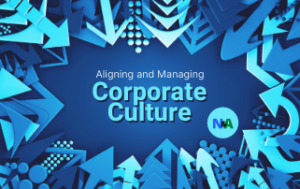 “Either you manage the culture, or it manages you.” (Dr. Edgar Schein)
“Either you manage the culture, or it manages you.” (Dr. Edgar Schein)
This quote of Dr. Schein was taken from the highly recommended, insightful, and practical book, “Leading culture change in global organizations: Aligning culture and strategy“, by D. Denison, R. Hooijberg, N. Lane, and C. Lief.
“ERP Culture” is a Significant Key to Organizational Success
The term “ERP culture” refers to the set of shared values, beliefs, behaviors, and practices within an organization that are specifically required for a successful Enterprise Resource Planning (ERP) systems implementation and assimilation. ERP culture encompasses the attitudes and norms surrounding how individuals and teams interact with and adapt to the ERP technologies, processes, and organizational changes required of ERP organizational change success.
Understanding and Managing Organizational ERP Culture
A general point of the above quote by Dr. Schein is that sustaining positive organizational change often requires a cultural shift. Aligning culture, increasing performance, and orienting the organization towards a common strategy doesn’t “just happen”. No magic wands exist during large scale ERP organizational change. Unless significant and sound research and case studies are wrong, organizations absolutely benefit from understanding and managing the corporate ERP culture. There are naturally inherent good influences and not so good influences within each and every organization. In order to advocate for positive organizational performance outcomes, focusing on cultural attributes that directly influence positive organizational change can be recognized, acknowledged, and managed.
Organizational ERP Culture is Critical to Successful Organizational Change
Some of the greatest minds in organizational culture and organizational performance provide a compelling reason and evidence as to the value of a healthy organizational ERP culture that best advocates for organizational performance success. ERP organizational change project plans must include concrete and tangible actions in which to measure and manage organizational ERP culture. Anything less is assuming that organizational ERP culture is being treated as simply a buzzword and is not really significant in ERP organizational change. ERP organizational change consists of a complex and dynamic interplay between people (human beings with emotions, goals, agendas, and various levels of motivation, knowledge, and experience), process, and technology. And, the “people” part of this triad can not be undervalued or underestimated.
Organizational Culture and Business Performance
Friend and colleague Dr. Daniel Denison and his colleagues (Dr. Robert Hooijberg, Nancy Lane, and Colleen Lief) in their book “Leading culture change in global organizations: Aligning culture and strategy ” state that:
“Research over the past two or three decades has shown that an organization’s culture has an impact on business performance in four main ways:
- Creating an organization’s sense of mission and direction
- Building a high level of adaptability and flexibility
- Nurturing the involvement and engagement of their people
- Providing a consistency that is strongly rooted in a set of core values
These are the cultural traits that most clearly affect business performance, so this is where the journey must begin” (page 2).
And, this is where ERP organizational change success journey must begin.
Food For Thought
Think about this for a moment, how crucial is this research for ERP organizational change? ERP organizational change that is undeniably often quite disruptive, requires creative and innovative ways of thinking, implies changing what was the “norm” and long-held habits, and requires consistency and perseverance. As someone who has studied successful ERP organizational change (i.e. companies that have realized success), Dr. Jack Nestell states that “Even for the most successful of ERP organizational change endeavors, research suggests that aligning culture and strategy is no easy feat”. This is supported by research-based evidence as also noted in the below excerpt from “Leading culture change in global organizations: Aligning culture and strategy”:
“But can something as complex as corporate culture actually be managed? The task is daunting-but doing nothing is not an attractive option! Organizational culture guru Edgar Schein said it best: ‘Ether you manage the culture, or it manages you.’ Managing culture change is certainly not easy, but there are plenty of real-life examples of global companies who have succeeded” (page 3).
If the above were true, which it no doubt is, isn’t it worth gaining insight and knowledge on how best to advocate for an ERP culture with an aligned sense of mission, high level of adaptability and flexibility, engagement, and consistency? Does your ERP organizational change plan include organizational discussion and action around these significant ERP organizational change success influences? Successful ERP organizational change includes much more than technology and process. Obviously, during an ERP organizational change endeavor, processes and technology are, by definition, managed (albeit with varying levels of success). The people part of the triad, or organizational culture, also needs to be managed with a high level of enthusiasm, energy, and intent.
LEARN MORE: Denison, D., Hooijberg, R., Lane, N., & Lief, C. (2012). Leading culture change in global organizations: Aligning culture and strategy (Vol. 394). John Wiley & Sons. https://www.amazon.com/Leading-Culture-Change-Global-Organizations/dp/047090884X
About Nestell & Associates: https://nestellassociates.com/
